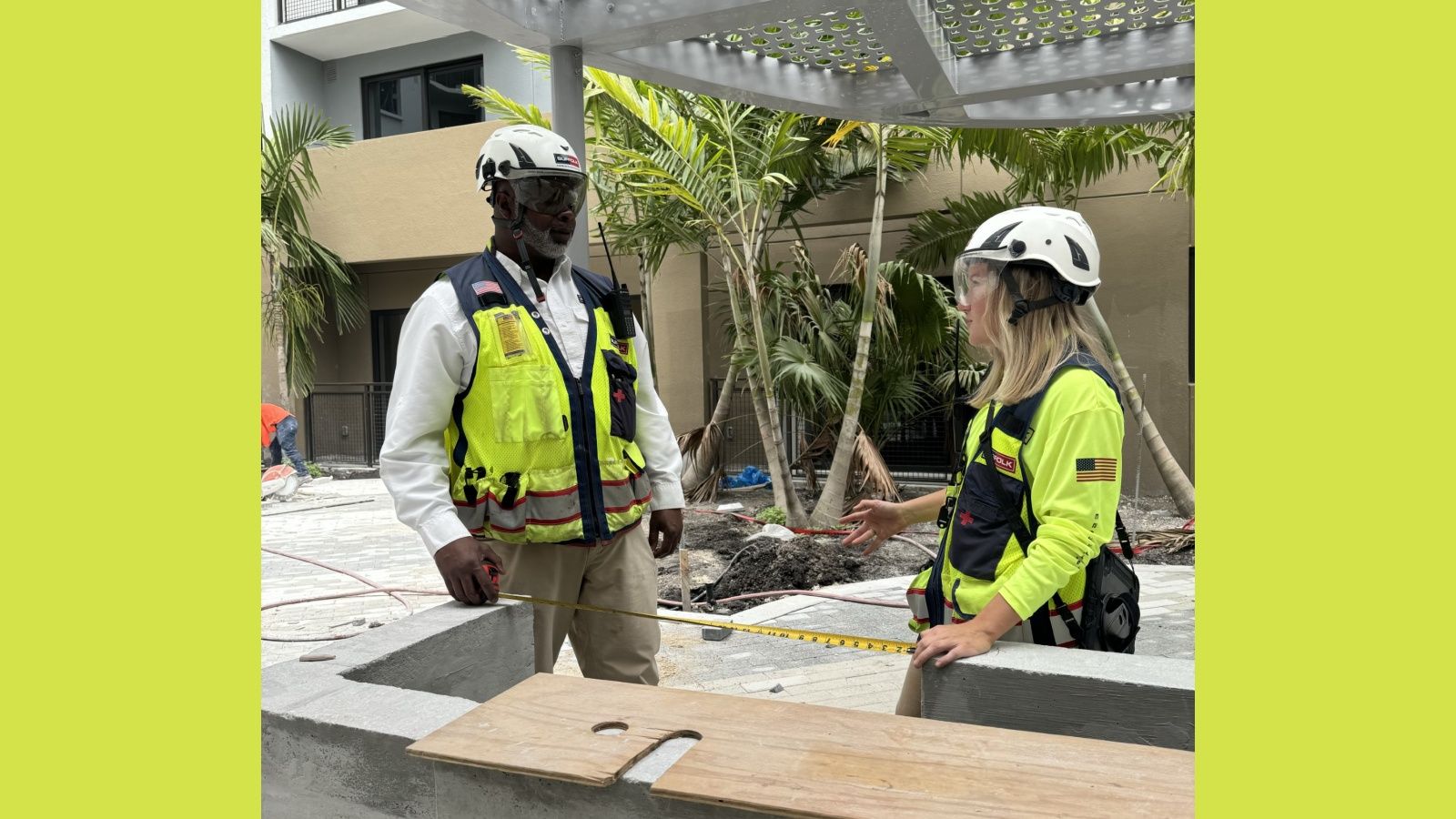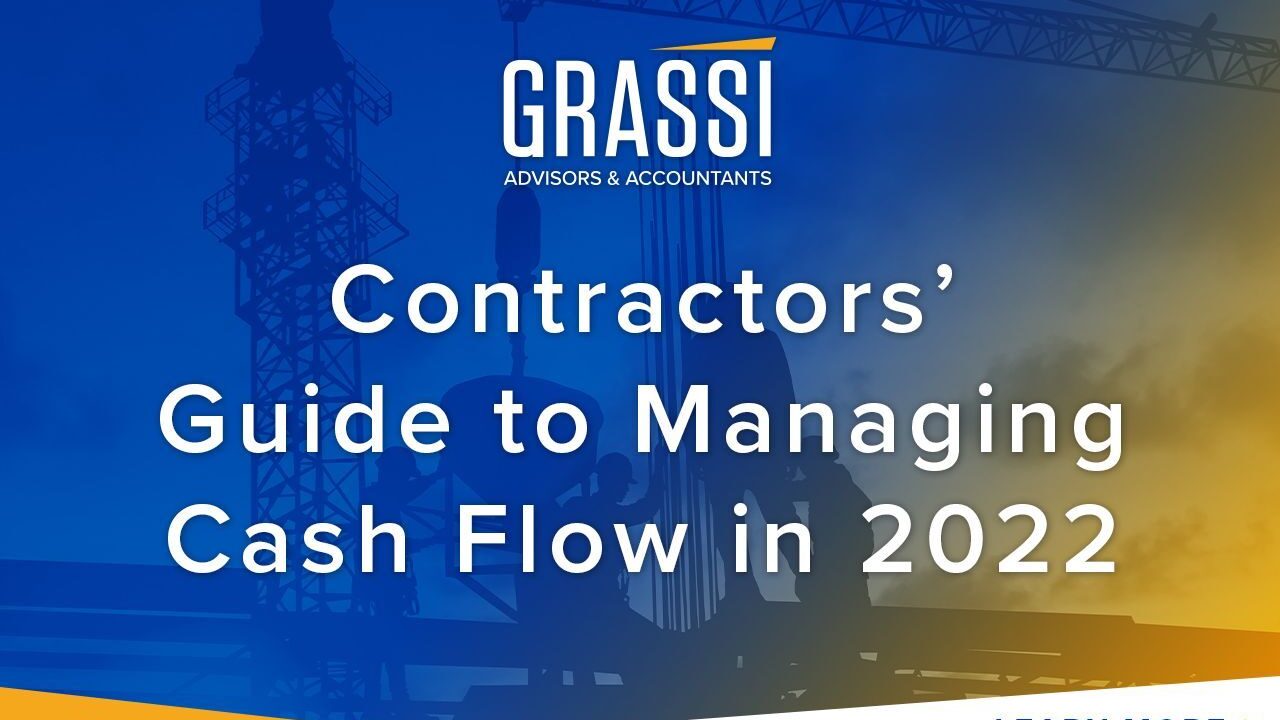Growing up in North Carolina, Grace Novak always knew she was a builder. Fascinated by Lego toys in her childhood, enthralled with set design and build for her high school’s theater department and captivated by the machine shop at Duke University—where she earned a degree in mechanical engineering—Novak has always loved bringing her designs to life.
After graduating from Duke in the spring of 2021, Novak accepted a project-engineer position with Suffolk Construction as part of the national builder’s Career Start program, matriculating into the national builder’s Florida region. Still at Suffolk, she has picked up a new title—assistant superintendent—and a lifelong mentor in Jean Paul, a general superintendent and Novak’s team leader during her time with Career Start.
Being a young female in a male-dominated industry—and with a seasoned male mentor—might seem daunting, but Novak says her experience has been gratifying, validating and enlightening. Just as it has for Paul. Novak was Paul’s first female mentee, and just as he has been able to impart his experience and knowledge on her, she has taught him a thing or two as well.
“Grace came to Suffolk straight from college with an engineering degree and has shown me that when a person is willing to learn, ask questions and go beyond their comfort zone, their growth potential has no limits,” Paul says. “This mentorship has been organic from day one and will make us better individuals in our professional and personal lives.”
The mentor-mentee dynamic is a unique balance between friend and teacher, confidant and colleague. The majority of mentors in the construction industry remain male—despite the increasing number of women taking on a variety of roles from the field to the office—but Novak doesn’t think her experience would have been any different even if her mentor were female.
“To be a successful superintendent, you need to be knowledgeable about how to build,” she says. “You need to be humble. You need to be firm. You need to be a direct communicator. You can’t fake those qualities and all of the leaders that I know who are great superintendents—male or female—have them in spades. You can’t fake being a good leader in this industry.”
Construction Executive recently spoke with Novak about her experience in the industry from her perspective as both a woman and a skilled construction worker in a male-dominated field.
Tell us about Suffolk’s Career Start program. How did you find out about it?
The Career Start program is a two-year, full-time, paid position for individuals who have just finished college or are very early in their construction careers. A family friend familiar with the program introduced me to Chris Millette, director of the Career Start program. I was one of 36 people and one of nine women accepted into the national program for the class of 2023.
It is structured into three different eight-month rotations—preconstruction, project management and superintendent. The superintendent role involves being in field uniform, boots, radio and hard hat every day in the field managing the trade partners, making sure everything is getting built per plan, sequencing your work and putting out a lot of fires. I fell in love with it and decided to stick with it.
What happens after you complete Career Start?
At the end of each rotation, you have a performance review by your manager, who is also the same person who manages the full-time senior-level employees. My current manager, Jean Paul, is a general superintendent, which is the highest-ranking superintendent. He manages senior superintendents, superintendents, assistant superintendents and Career Start [graduates] who now have the title of project engineer.
When you complete Career Start, you need to be invited back to Suffolk for employment. It’s not guaranteed that you just get to go wherever you want.
Jean and I built a really great relationship. When I started in my superintendent rotation, there were three of us out here in the field—Jean, a superintendent named Marcos and me—so I was able to work closely and learn from Jean, and he said that he was happy to welcome me back. I was also deeply involved in so many parts of that project at the time.
You and Jean each represent different ends of the industry spectrum. What was your initial relationship dynamic like? How did you come to work so well together?
For me, he’s a great teacher and he’s not afraid to give responsibility, to throw his students in the deep end to teach them how to swim. I do very well with that. Things really stick with me if I have to fall on my face a little bit, but for me it’s his leadership style as well. You have this idea of a superintendent, and you think of a guy like Jean. He’s a giant guy and he grew up around the trades. He was a tradesman himself, rather than a construction manager, for the majority of his career.
I had this idea that superintendents are like drill sergeants: very militant, harsh individuals. Jean is not that guy, and I immediately noticed everybody else’s respect for him. Nobody is afraid of him, but everybody does what he asks out of respect.
When I was very new to the field, I thought to myself, no matter what I do in my career, even if it’s not construction, that’s the type of person I want to be.
What has he taught you? And, perhaps, what have you taught him?
I always associate mentorship with the teaching of soft skills, which Jean has been great at doing. He really taught me the importance of humility in this role. But [soft skills don’t] really matter if you don’t know how to build, and Jean is amazing at pulling up the drawings on an iPad, saying, “Walk with me. I’m going to show you what’s going on,” and taking me along with him. If he says things, words, concepts I don’t understand, he pauses and asks me if I know what he’s saying.
So, in terms of concrete knowledge, he’s been really great at bringing me along with him when he walks a new trade partner on the site that needs to, for example, bring a concrete subcontractor to the jobsite to pour a concrete slab. He’s talking technical terms with this new concrete company that’s onsite, explaining to them exactly what we need, and he has me there looking at the drawings with him, so that I am able to have this same conversation the next time a company comes out here to look at what pending work we have on site.
I didn’t know this previously, but I’m the first young woman that Jean has ever mentored. He sees what I can do. He trusts me. And now there are other young women coming through that are going to also be his responsibility to coach up and make into great superintendents. He didn’t have doubts [about mentoring a woman] per se, but now he knows there is nothing that holds women back from doing this job.
If you were to become a mentor in the future to another young person, whether that be male or female, what wisdom would you wish to impart upon them?
The first thing I would tell somebody just starting out in this job is, knowledge is the most valuable thing you can walk into a conversation with. Know how to build what you’re building, or at least know what you don’t know, because if you make yourself look unknowledgeable, you’re going to lose a lot of respect out here, and people get work done for people they respect.
What are your future goals?
I love being at Suffolk. It’s a really great place to learn, and I think there is always going to be something to learn in this type of role. The people who work here are incredible mentors and teachers and builders. I would love to be at Suffolk as long as Suffolk will have me.
For my long-term career goals, it’s hard to say how my interests will shift in the future, but right now I love being in the field. I love being an assistant superintendent. I’ve been challenging myself to reach the next superintendent title because what bumps you from an assistant super to a superintendent is being knowledgeable. So, I’m hungry for knowledge to get to that next level, to take on more responsibility.
It’s such a fun environment, and you show up one day in March and your building looks this type of way; you put in your work hours, you come back day after day, and the next month you take a look at your building and its visible progress. That’s extremely gratifying to me right now.
There are no trophies for just showing up. You don’t gain recognition; you don’t earn respect by just being present. You need to be good at this job to stay at this job, and you can’t fake being good here. The leadership that we have at Suffolk and the people that I’ve interacted with, they’re just amazing and incredible teachers and mentors. That’s as much about that as you can say.








